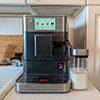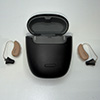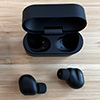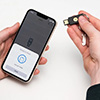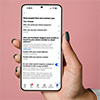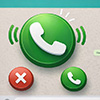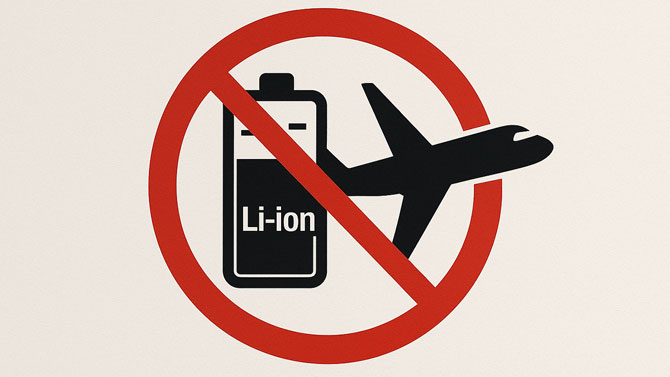
There are a lot of items that you are no longer allowed to carry onto an airplane. It's a fair point: an airplane is a metal tube flying above 30,000 feet at 500 miles per hour with very little room for error. Meanwhile, batteries – and specifically lithium-ion batteries – can be dangerous under certain circumstances.
Lithium-ion batteries power all sorts of electronics, but the most common items are smart devices (phones/tablets), laptops, and power banks. Toward the beginning of 2025, a power bank caught on fire in an overhead compartment on a flight from China to South Korea. Fortunately, flight attendants were quick to douse the flames, but needless to say, the rest of the airline industry took notice.
New regulations have been handed down, and it's important to be aware of them before you attempt to board a plane. First, the best route is to take a look at the FAA's website to review that agency's guidelines on lithium batteries. One very important note: Lithium batteries are only allowed in carry-on bags. They cannot be checked in your checked luggage.
Batteries that are carried onto a plane must be for personal use only. You cannot carry a big batch of batteries onto a plane that you intend to sell elsewhere. Non-rechargeable lithium batteries are limited to just 2 grams of lithium per battery. Rechargeable Lithium-ion batteries are limited to 100 watt-hours of capacity – we'll discuss the difference between hours versus milliampere hours in a moment. If your batteries fall within the range of 101-160 Wh of capacity, you are limited to just two. Anything above that is not allowed.
Most spare batteries that people will carry are going to be listed in milliampere-hours (mAh), rather than watt-hours (Wh). The simple conversion for that is to divide the mAh rating by 1,000. Subsequently, a 25,000 mAh battery is 25 Wh. The largest Lithium batteries you'll typically carry will be in your laptop. The largest battery in the largest laptop that I have reviewed is, not coincidentally, 99.9 Wh.
Read more: Best Slim and Fast-Charging Portable Batteries
Of course, now that we've established what the FAA allows, it's really up to the airlines – and other countries – to determine what they allow on board. My preferred airline, United, allows up to two lithium batteries with a max of 160 Wh. The website doesn't specify if that means two batteries up to 160 Wh each or 2 batteries combined. United Airlines does not allow any kind of battery pack, vape or e-cigarette, or even the power banks that are built into smart luggage to be checked.
Different airlines will have different rules, and different countries will have different rules as well. South Korea will only allow up to five lithium batteries of 100Wh or less, and after that, you have to seek special approval. Even then, you are not allowed to stow batteries in the overhead bin – they need to stay on you or in the seatback in front of you. Other airlines around the world prohibit you from using power banks in flight at all.
Bottom line, an airplane is no place to have a bad experience with a potentially dangerous substance. If you are planning to travel, especially out of the U.S., be sure to check your airline's regulations and those of any international destination, lest you get caught unawares.
Read next: How to Get Emergency Satellite Service for Your Phone (or Watch)
[Image credit: Suzanne Kantra/Techlicious via ChatGPT]

